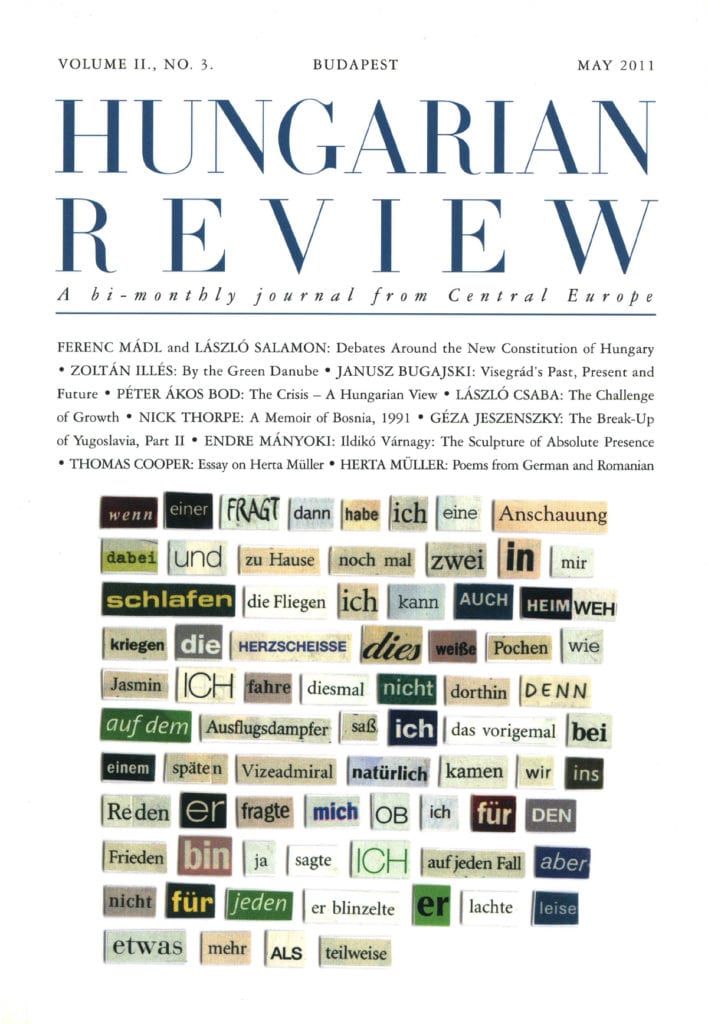THE GREAT HUNGARIAN DEBATE
The adoption of a brand new constitution in Hungary has been met with celebrations from Fidesz and its supporters, groans of anguish and theatrical gestures from its opponents, and not

The adoption of a brand new constitution in Hungary has been met with celebrations from Fidesz and its supporters, groans of anguish and theatrical gestures from its opponents, and not
NT:Hungary was struck last October by a serious chemical disaster, when a reservoir containing red sludge from an alumina plant burst at Ajka in the midwest of the country. Are
In recent months Hungary has figured prominently in the news, partly as the country that currently holds the rotating presidency of the European Union, but also because of issues of
It is proper to claim that 2011 is the “year of Europe” in Hungarian economic policy making, and only partly because of the Hungarian presidency of the European Union (EU)
In the second decade of the 21st century Hungary faces the challenge of growth on at least three levels. First, economic growth, which grew by an annual 3.9 per cent
A personal tribute to Ferenc Mádl, on his 80th birthday In one of the rare moments when Ferenc Mádl spoke of the important influences in his life – perhaps in
In Defense of Tipping Physicians In recent years the practice in Hungary of routinely tipping physicians has come under much deserved criticism. The so-called “hálapénz rendszer,” or “gratitude money system”
The protest movement in the Arab world has been likened to the popular uprisings that brought down Communism in Eastern Europe in 1989. The EU, back then, rose to the
The future of the Visegrád initiative has not been a hot topic in either Washington or Brussels. Indeed, even those policy makers and politicians who know something about the Visegrád
The Soviet break up – a model? A coup d’etat against Soviet President Gorbachev was attempted in Moscow on 19 August 1991 by hard-liners, but thanks to the resolution of
A Memoir of Bosnia, on the Eve of War Roberta Flack was singing, “Killing me softly,” in the lobby of the Hotel Bosna in Banja Luka when I arrived. “Strumming
Lucian Boia: Tragedia Germaniei 1914–1945 [The Tragedy of Germany 1914–1945]. Humanitas, Bucharest, 2010. 142 p. For some years now, historians have been seeking new ways to interpret Germany’s 20th century history. In
When Herta Müller was awarded the Nobel Prize for literature in 2009 the Nobel Foundation praised her for her power to depict “the landscape of the dispossessed.” Considering the role
If someone asks I have at hand a view and at home another two in me sleep the flies I can get homesick too sometimes the heartshit this white beating
I first came to Budapest in February 1991. As an ardent student of architecture and design in the period 1880–1914, I used the little free time I had to study
78,000 characters equals sixty-two typewritten pages according to the old standard. An obsolete standard. No counting by standardized pages anymore, neither little nor big. But the detailed data of a